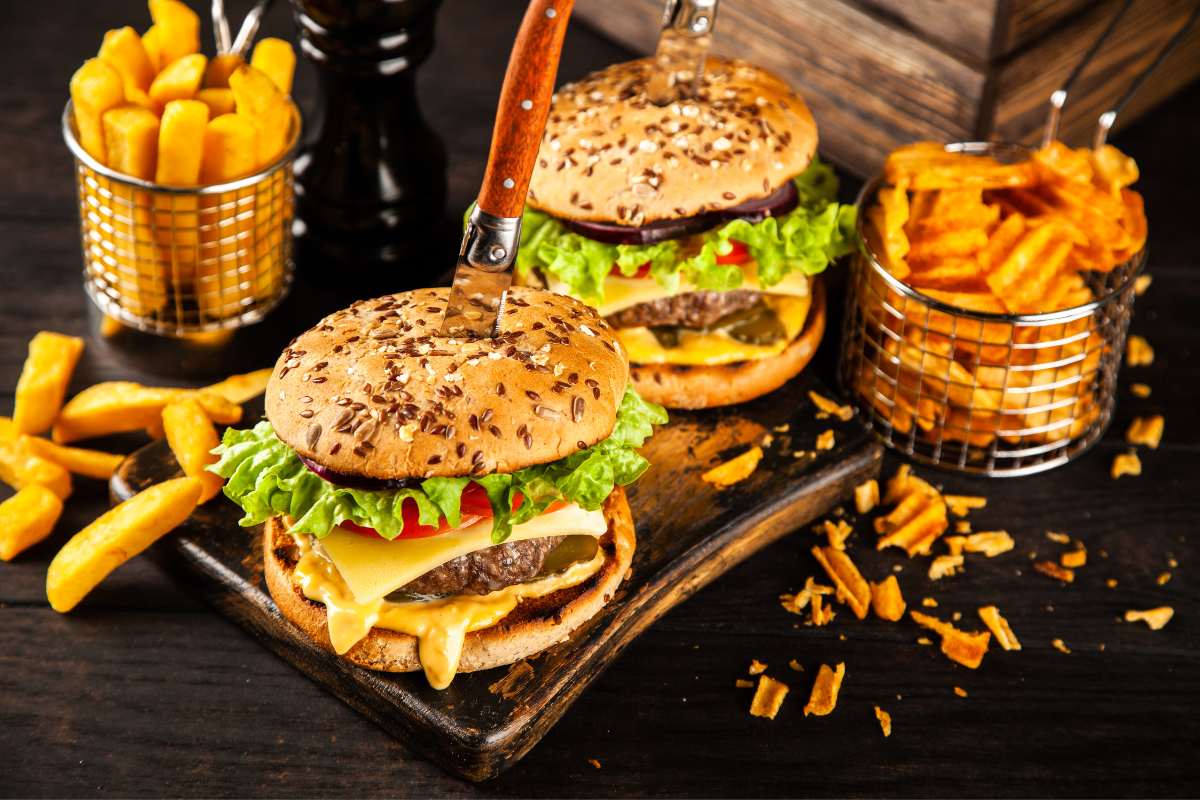IPR Newsletter – Who’s the Real King? – An Analysis of Burger King V. Anahita Irani : August 2024
Introduction
The 13-year-old legal dispute between the international fast-food giant Burger King Corporation, headquartered in the United States, and Pune’s cherished Burger King has concluded with Burger King winning. The multinational’s petition was denied by the commercial court of Pune, which is presided over by District Judge Sunil Vedpathak. This decision paves the way for the local establishment to continue operating under its iconic name.
The controversy was initiated when Burger King Corporation, which oversees a global network of 13,000 fast-food restaurants, filed a lawsuit against Anahita and Shapoor Irani, the proprietors of Burger King restaurants in Camp and Koregaon Park in Pune. Since 1992, Burger King has been the moniker of the local eatery. Burger King Corporation entered the Indian market in 2014. Burger King Corporation alleged that the local eatery’s use of the moniker “Burger King” infringed on their trademark and resulted in brand confusion.
Plaintiff’s Contention
Upon applying for trademark registration in India in 2009, the US-based company discovered that the Pune eatery was already operating under the name “Burger King.” The corporation requested a permanent injunction from the court to prevent the Pune-based restaurant from using the “Burger King” name. They alleged trademark infringement and requested a permanent injunction and damages.
Defendant’s Contentions
The couple argued that they had been operating their eatery under the same name since 1992, prior to the multinational food chain’s entry into India. They denied any intention to copy or mislead anyone and claimed that the public in India was not even aware of the international brand when they established their food joint.
The Irani family argued that they had been using the name long before Burger King Corporation’s entry into India, establishing prior use. Moreover filed a claim for damages of 20 lakhs.
Judgement Analysis
Burger King’s whole case hinged on their capacity to present convincing evidence in support of their assertion that they are previous user of their registered trademark and that it enjoys a reputation and goodwill that extends across international borders for the specific property in question. Burger King submitted an Affidavit of Evidence of Vincent Jose along with the papers in order to provide evidence in support of this claim. In this particular instance, Burger King made a mistake and violated the principles outlined in Order 19 Rule 3 (1) of the Code of Civil Procedure, 1908.
Order 19 Rule 3 (1) of the CPC specifies that “Affidavits shall be confined to such facts as the deponent is able of his own knowledge to prove, except on interlocutory applications, on which statements of his belief may be admitted: Provided that the grounds thereof are stated.” This rule applies to affidavits where the deponent is able to prove the facts on his own.
In his evidence affidavit, the witness Vincent Jose was expected to say and identify all statements that are to his own knowledge. He also needed to declare and identify all statements. According to the learned court, Vincent Jose just mentioned in the verification clause of his Evidence Affidavit that “Whatever above written is true and correct to the best of my knowledge, information, and belief, therefore I signed therein below on this 20th day of September 2019.” This was the only statement that Vincent Jose made. As a result of the learned judge’s conclusion that the verification of evidence affidavit does not comply with Order 19 Rule 3 (1) of the CPC, the evidence affidavit was rejected. A judgment handed down by the Supreme Court of India in the case of AKK Nambiar v. Union of India (UOI) and Miraj Marketing
Corporation v. Vishaka Engineering – (2005) 2 AD (Delhi) 252, served as the basis for the decision of the learned judge to reject the evidence affidavit.
The court observed that the person who filed the affidavit was neither an employee of the US company nor its Indian subsidiary. The Court also found that the person was not duly authorized to depose on behalf of the company.
“It is apparent that the witness has no personal knowledge about any events, facts, cause of action, or averments made in the evidence affidavit of examination-in-chief. His entire evidence is of a hearsay nature and further as per legal requirement, he ought to have disclosed the source of his information which he referred/deposed in the affidavit. Therefore, whatever mentioned in the evidence affidavit of PW-1 could not be proved and, therefore, evidence affidavit of PW-1 is required to be treated as no evidence,” the Court observed.
Burger King was unable to demonstrate their claim of being prior users of their registered brand and of transnational reputation and goodwill when the proof affidavit was rejected. Once this occurred, Burger King was unable to establish their claim. As a consequence of this, the Court was of the view that the Pune establishment has been conducting their business for a long with the said name without interruption. Therefore, they are the honest and prior user of the name and not the US corporation.
“So far as claim of compensation/damages of ₹20,00,000 is concerned, except bare interested words that due to ex-parte order sought by the plaintiff against them, they had caused loss to their goodwill. He had to answer the questions of some customers including the plaintiff. As such, according to him, due to all these things, defendants had caused loss of Rs.20,00,000/-. However, there is no supporting evidence to prove the actual damages caused to defendants. Therefore, like plaintiff, defendants are also not entitled to claim of damages,” the Court said while refusing any monetary relief to the Pune establishment.
Key Takeaways
A major precedent has been established by this verdict, which demonstrates that trademark law places a high weight on the rights of enterprises that have been operating in their respective regions for a considerable amount of time, regardless of the size or reach of rival entities from other jurisdictions. This serves as more evidence that multinational corporations have a responsibility to diligently maintain and protect their trademarks on a territorial basis. This is analogous to the case of Toyota Kabushiki v. Prius Auto, in which territorial usage was a significant factor in trademark disputes.
This case serves as a warning to multinational corporations that they need to take measures to actively protect their trademarks in every country that they enter and that they should be ready to address local precedents and existing brands that may have rights that are prior to their own.





